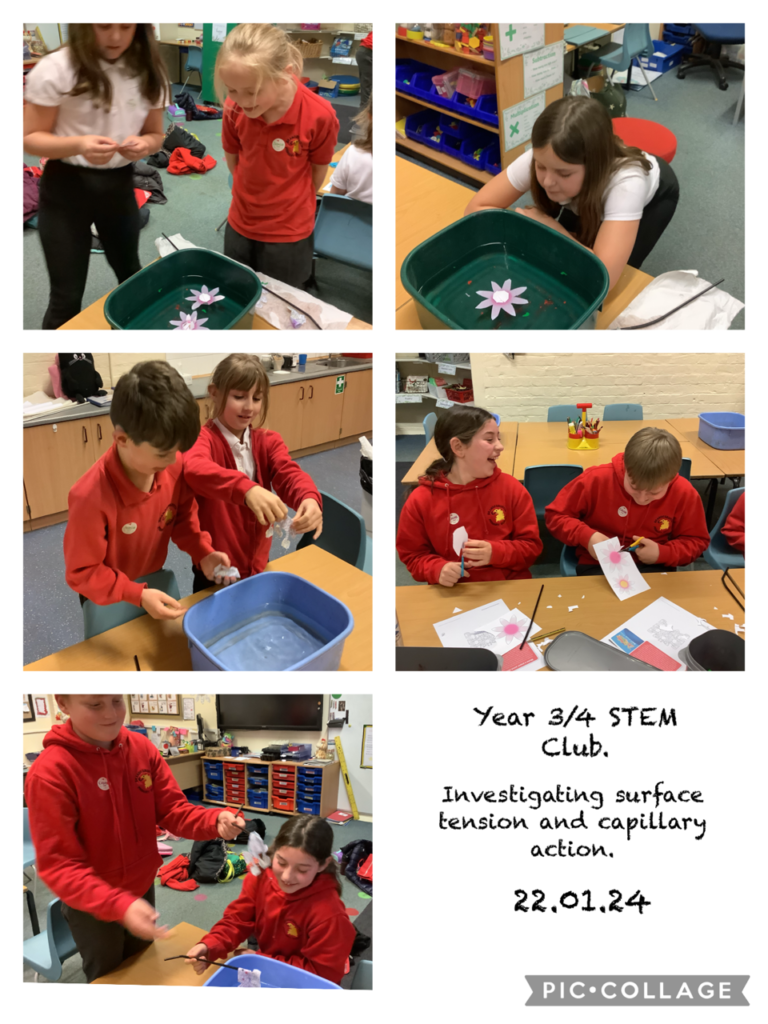Tonight saw the first session of the year 3/4 STEM Club. It was lovely to see both some new faces and some returning pupils who attended the club last year in either year 2 or year 3.
Tonight were investigating the effects of water surface tension and capillary action.
First of all, everyone cut out and coloured their pond skater template which was a nice relaxing bit of artwork before we got to the science bit. Then the pupils smeared butter over their pond skater’s feet to make them slightly waterproof. When they carefully placed them on the surface of the bowl of water, the pond skaters didn’t sink. They were able to use a straw to move their pond skater round the bowl. They discovered that the pond skaters were not floating – the scientific concept was that surface tension had been created between the pond skater and the water. This is exactly what would happen in real life too.
Secondly, the pupils cut out two flower templates, one slightly smaller than the other. They folded the petals in on the smaller flower and then placed it inside the bigger flower. Once again they folded the petals of the larger flower over. When they carefully placed the flower on the water, the petals of the larger flower opened up very quickly, followed by the petals on the small flower. This was the result of capillary action. The water moves through the very tiny gaps in the fibres of the paper template by capillary action. When the water soaks the paper, the paper swells causing the petals to open up. The pupils all had great fun investigating these scientific concepts.
In addition, this term’s STEM Club attendees, plus our year 6 STEM Club ambassadors, are forming the judging panel for the Royal Society’s Young Peoples Book Prize. Each year the Royal Society run this competition and they shortlist six books that are STEM related and suitable for primary school aged children. They then invite schools to apply to be on the judging panel to vote for their favourite book based on interest, ease of reading, look and feel and inspiration. This is the third year that Brandesburton Primary School have been successfully selected to form a judging panel and we are excited to review all six shortlisted books and make our final recommendation to the Royal Society in a couple of weeks time.

